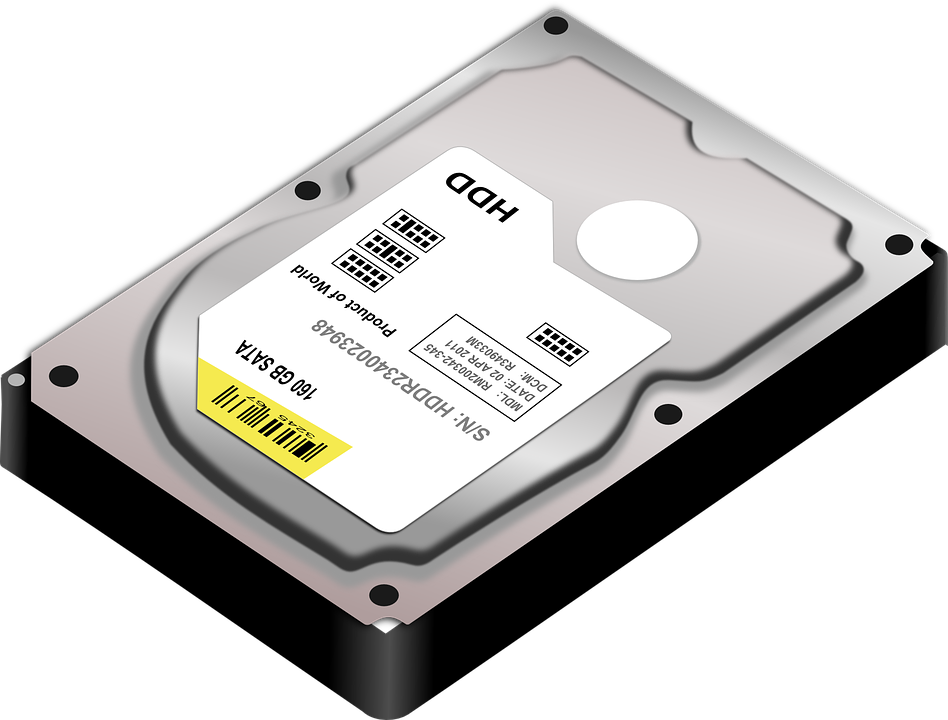Why Should Businesses Have Reliable Storage& Backup IT Infrastructure?

Why Should Businesses Have Reliable Storage& Backup IT Infrastructure?
Why Should You Reliable Data Storage & Backup IT Infrastructure?
No matter what the size and nature of your business, whether SME or blue-chip, data plays a central role in business operation, strategies, marketing, and decision making. Information in the form of emails, documents, spreadsheets, graphics, databases, and audio& video files has become the bloodline for every kind of business. But data is very fragile. It can be lost anytime, anywhere, and everywhere. Having storage & backup solution to avert this nightmare has now become an inevitable necessity. There can be multiple reasons for the loss of critical information. Sometimes, employees of your company can make a mistake or steal information, or some emergencies like floods, fires, or any disaster can wipe out the data you have. And needless to say, ransomware, viruses and hackers can cause havoc to your business by breaching data security. Putting in place reliable data storage & backup infrastructure can help you enjoy distinctive advantages in the market:
- Reliable data storage & backup is now regulatory compliance.
- It builds trustful relations with customers and you don’t have to suffer from economic losses arising out of reputation damages and legal suits.
- Data security can only be strengthened by reliable storage and backup infrastructure.
- No disruption occurs to the performance of the company even in the case when disasters strike because a backup or recovery mechanism makes sure the data is accessed in the form of replicated copies.
- This type of infrastructure helps management perform data-linked tasks in a streamlined manner. Data is centrally organized and can only be accessed by authorized persons which makes data management an easy task.
In short, the deployment of data storage and backup resources in the workplace is one of the fundamental requirements for any kind of business. But there are countless offline and cloud storage options in the market and it becomes a daunting task to find the storage solution that best fits your business. In the following lines, we help you navigate the tech world with ease and confidence and find the most appropriate solution for your business needs.
Generally, it is suggested that businesses follow the 3-2-1 rule (3 copies of each file, storage of data in two formats-drives, tapes, or cloud, and keeping of one copy in offsite storage). Following solutions are usually practiced to adhere to this rule:
Direct Attached Storage(DAS)
This is the basic type of storage option. DAS is a low-cost and low-maintenance storage & backup solution. It could be in the form of built-in internal storage or it is connected directly to the host computers. DAS is not a complex IT solution; it does not require any kind of high-upfront costs as compared to Network Area Storage(NAS) or SAN which are quite expensive and requires skilled IT human resources.

Major examples of DAS are Hard drives ,solid-state drives, tape libraries, USB Flash Drivers, optical disk drives, etc. Like every technology, DAS has also some advantages and disadvantages:
- It is most suitable for small businesses, departmental stores, and workgroups that share data locally and don’t have the budget to spend on finding high-end storage solutions. If you don’t afford the associated cost that incurs due to the operation and maintenance of NAS or SAS, you must go for DAS.
- The major bottleneck in the adoption of this solution is that it is not scalable. If your business is growing rapidly and you need to share data across enterprises, DAS is not your best bet.
- DAS is used generally by medium-sized companies, and larger corporations use DAS in conjunction with other online storage options like NAS and SAS.
Network Attached Storage:
For small and medium-sized businesses that can afford a small IT department and are eyeing expanding their business or expecting growth in the future, they should prefer Network Area Storage to cater to the needs of new users and growing data. NAS can provide easy, comparatively affordable, reliable, and fast storage and backup solution in an IP networking environment. NAS is a device directly attached to the network that can be either LAN or WAN.

The network administrator can grant access to data stored on the NAS system to all connected devices and thus provide broader accessibility to multiple users who log in to the storage system. The pros and cons of the NAS system have been discussed below:
- It provides a centralized file sharing and data storage solution, thereby consolidating storage and improving efficiency, simplifying storage administration, and strengthening the data recovery mechanism;
- NAS features data redundancy as well in the form of RAID (Redundancy Array Independent Disks). RAID is a data recovery technique in which two or more hard drives having equivalent storage are enclosed within a device connected to the network. When data is written on one disk, the same data is automatically copied on the second disk. In case, one disk is wiped out or dies, the data on the second disk remains the same. Hence, you will continue to access files, business applications, or other data reliably despite the disaster strikes.
- NAS can offer better scalability depending on the needs that arise during business expansion. The additional USB or FireWire can be used to enhance the storage & backup capabilities of the installed NAS system;
- One downside of this storage solution is that it cannot transfer block-level data supported by fiber-channel connections. It can only work at the file level. So large corporations for instance those which use industry-standard hypervisors like VMware find it unsuitable for their operations.
- Secondly, there can occur latency because of network issues.
Storage Area Network:
SAN is a sure answer to performing mission-critical and processor-heavy applications. SAN is a storage solution that comprises inter-connected switches, hosts, and physical storage devices. It transfers block-level data between servers and storage devices. Multiple transport protocols can be used to connect its components like Fibre Channels, Fibre Channel over Ethernet, or Internet Small Computing System Interface. Depending upon the transport protocol, the price and data transport capabilities of the SAN system can vary. Switches are another price determining price. Usually, entry-level or mid-range SAN is equipped with SAN switches and high-end SAN systems are provided with SAN directors.

SAN is generally used for large-scale enterprises that run data centers or require a Virtual Computing environment for industry-standard business operations. The SAN storage solution can be weighed upon in the light of the following observations:
- When it comes to speed, efficiency, and reliability, SAN is matchless, it perfectly combines the speed of DAS and the scalability and flexibility of NAS.
- High-upfront cost is a serious roadblock in the utilization of the SAN system. It requires serious investment in both hardware and human resources to deploy and manage it. Therefore, companies having a limited budget and few IT resources should never consider this system for addressing their needs for storage & backup
Cloud Storage:
Purchasing IT hardware for storage and backup needs is quite an expensive undertaking. Particularly, if your company is data-driven and your ever-growing need for storage infrastructure. Nowadays, cloud-based storage has become a very attractive alternative for businesses. Cloud storage is storing data off-site simply on servers hosted by third-party data centers. Thus, storage of data becomes very affordable because companies no longer need to buy physical infrastructures like portable hard drives and on-premises servers. Cloud storage &backup offers many advantages. Notable among these are cost efficiency, security, accessibility, scalability, reliability, and more. The drawbacks of this can also be many like lack of control, privacy concerns, and difficulty in migrating to another cloud-providing vendor. But in the longer run, the benefits of cloud storage certainly outweigh their disadvantages.
A Quick Overview of Morgan Ingland Ltd:
Morgan Ingland Ltd offers a full portfolio of hardware, software, and IT skills linked with Storage & Backup. Solid State Drives, RAID controllers, Tape Drives, Data Tapes, SSD docking stations NAS, and other storage devices, we offer everything you may need to address your growing demand for storage & back infrastructure. Our solution designers and product experts are all-time available to offer cost-effective Storage & Backup solution as per the needs of your business. Feel free to contact our team in order to access best-in-the-market ICT hardware and IT services.